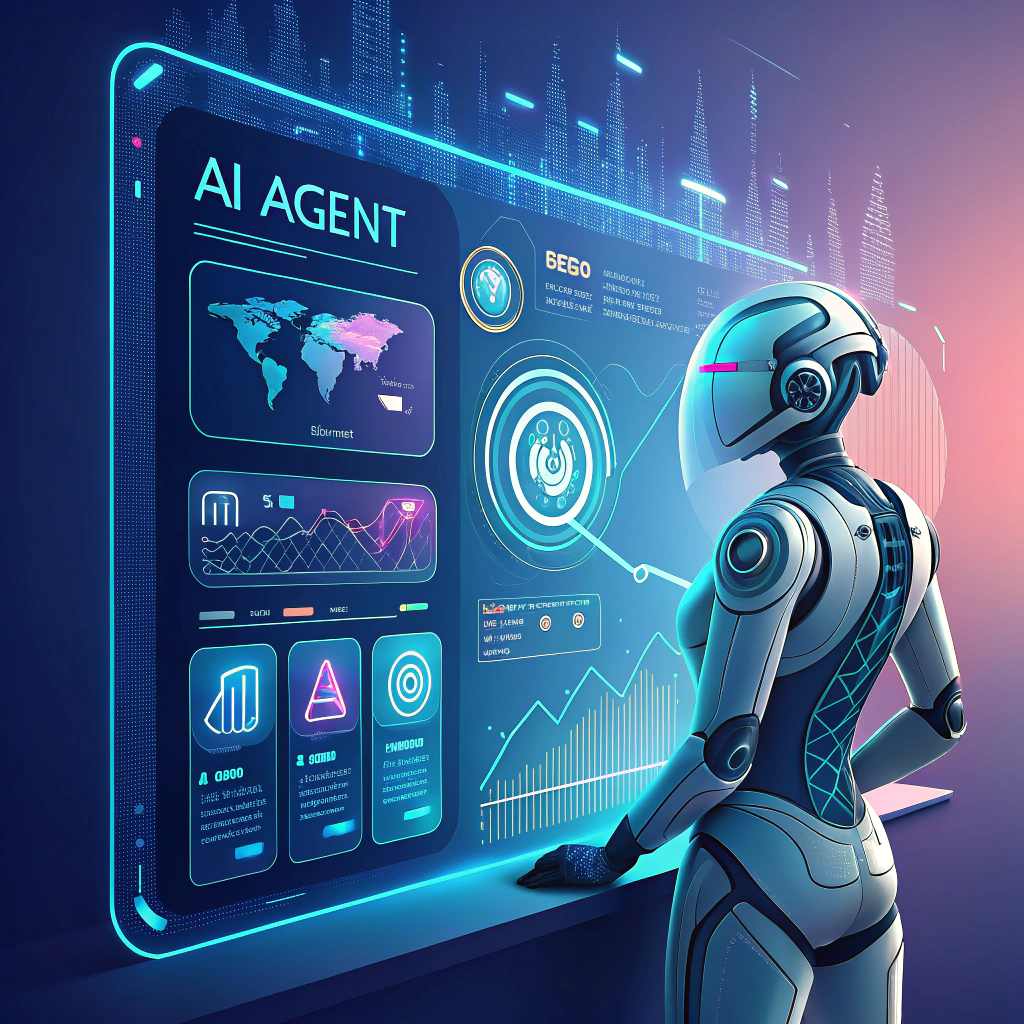AI Agents: Revolutionizing the Future of Intelligent Automation

AI Agents: Revolutionizing the Future of Intelligent Automation
AI agents are redefining the digital landscape by enhancing automation, boosting efficiency, and enabling intelligent decision-making. These dynamic systems are vital in sectors like customer support, healthcare, finance, and marketing, driving significant growth and innovation.

Image Source: Imaginary Image Generation
Understanding AI Agents
AI agents are advanced software entities designed to autonomously perform tasks using machine learning and data analytics. They process large volumes of data, make informed decisions, and optimize various processes across industries.
Key Applications of AI Agents
- Customer Support: Providing real-time assistance and personalized interactions.
- Healthcare: Assisting in diagnostics and managing patient data effectively.
- Finance: Automating trading, managing risks, and detecting fraud.
- Marketing: Analyzing consumer behavior to tailor strategies and drive growth.

Image Source: Core Components of AI Agents
Benefits of AI Agents
- Efficiency: Automating repetitive tasks to free up human resources.
- Accuracy: Reducing errors with precise data analysis.
- Scalability: Seamlessly handling increased workloads.
- Cost-Effectiveness: Streamlining operations to lower costs.
Challenges and Ethical Considerations
Despite their benefits, AI agents raise challenges such as data privacy concerns and potential algorithmic biases. Transparency and accountability are essential for their sustainable integration.

Image Source: Challenges and Ethical Considerations
The Future of AI Agents
Advancements in natural language processing, predictive analytics, and human-agent collaboration promise to further enhance the capabilities of AI agents, making them an integral part of future innovations.

Image Source: AI Agents for Content Generation
Conclusion
AI agents are reshaping the technological landscape, offering unprecedented opportunities for innovation and efficiency. Their increasing integration promises a smarter, more automated future across industries.



